Directed by Alan Elliott, Sydney Pollack
United States, 2018
So this week’s film, comes with a complicated backstory. Back in 1972 Aretha Franklin – surely she needs no introduction? – was flying high after a stream of hits: Respect, Think, I Say a Little Prayer, Rock Steady. She then decided to go back to church to record a gospel album, Amazing Grace. Warner Brothers wanted to film the recording and surprisingly hired the director Sydney Pollack to oversee the project. Pollack was an Oscar-nominated director and later won an award for Out of Africa but had no experience of filming concerts. Subsequently it turned out there was a problem: the crew didn’t use a clapperboard to synchronise sound and image so the film couldn’t be completed.
Roll forward to 2018, and a new team led by producer Alan Elliott and editor Jeff Buchanan managed to salvage the footage and painstakingly stitch the film together to produce this remarkable document of the Queen of Soul.
Where ReidsonFilm parted ways was on the question of whether this was a film worthy of review:
If a film is purely observational, and the filmmaker tries to remove themselves from the process entirely, then what you are watching isn't really a film – N
Strong words but it’s unarguable that the concert film is a definable film genre with a long track record. Think of Scorsese’s The Last Waltz, The Talking Heads’ Stop Making Sense, and most recently, Peter Jackson’s The Beatles: Get Back.
You would struggle to make the case that artistic choices are not being made here, both by the Sydney Pollack and Aretha herself. Why choose the New Temple Missionary Baptist Church, a church in Los Angeles, that to be honest looks well past its prime when they could have used a concert hall or one of the new mega-churches? And one of the fascinations of Amazing Grace is how we get to see a frustrated Pollack clambering around the church, desperately trying to get the shot he needs and a crew of heavily tattooed, bearded white men, streaming cables around the predominantly black congregation. It is often badly lit and certainly rough around the edges which in a way contrasts well with much of today’s highly polished ‘product’.
The album was recorded over two nights so we are, in essence, watching a drama of two acts. The first night opens with Aretha’s arrival in a plain white dress decorated with sequins, looking as though she may be heading for the baptismal pool. She seems apprehensive, but this apparent hesitancy belies the fact that she has been singing solo in the churches of Detroit from the age of nine. For Aretha Franklin this is work and initially she hardly acknowledges the audience between songs – no bows, no adulation. It is just her and the supporting cast … and my, what a cast. We have the Reverend James Cleveland: minister, composer musician, and here the definitive MC – a man with a preternatural awareness of the rolling camera.
We also have dressed in black shirts and dazzling silver waistcoats, the Southern California Community Choir directed by the dynamic Reverend Alexander Hamilton, who leads them, teases them, and pushes them toward a state of rapture. When Aretha begins to play the piano it feels more like she is testifying than performing, with her Afro circling her face like a halo.
The atmosphere ratchets up markedly for Act Two. As Aretha walks up the aisle, this time in a flowing, tie dye green robe, the choir are already engaged in the throes of the spiritual ‘Mary, Don’t You Weep’ with the church packed, to use an unavoidable cliché, to the rafters. It certainly doesn’t feel as though there has been an interval. The energy levels are right up there as the two big hitters arrive. We have Clara Ward, the original gospel diva – a profound influence on Aretha, and then the snappily-dressed Reverend CJ Franklin, Aretha’s father, who in one touching moment climbs the stage to mop his daughter’s brow. We also get occasional cutaways to a youthful Mick Jagger excitedly clapping away at the back of the church alongside a less fervent Charlie Watts.
But what we are really here for is the music. Her father states that Aretha Franklin ‘synthesises’ the styles of Clara Ward and Mahalia Jackson, two great gospel singers. ReidsonFilm would go further in that she represents the fusion of a range of musical traditions. Her left hand pounds the piano in the best tradition of Fats Waller’s stride and you can hear those R&B echoes of Howlin’ Wolf when Aretha begins to improvise on Precious Memories. Yet she is also a master technician who treats her voice like the instrument it is: bending notes and sweeping in and out of the harmonics as only the finest jazz instrumentalists can. Throughout it all, she remains focused, almost dissociated, and then for a moment she shuts her eyes and looks so happy – she is flying.
It wasn’t a concert, it was an experience - so intense that it feels like it can and should go on forever - S
As the night swells toward the crescendo the screen splits and the audience get out of their chairs and start dancing. The atmosphere becomes frenetic. At one point Clara Ward‘s mother becomes so overwhelmed she rushes the stage, starts moshing, and has to be restrained.
But nevertheless, ReidsonFilm were still left debating whether Amazing Grace works as an artistic endeavour on its own terms or whether it was a straightforward documentation of a tremendous performance. As the saying goes: different strokes for different folks.
Amazing Grace was boring and one of my least favourites … so slow and laboured - C
Amazing Grace is Aretha's singular masterpiece ... her greatest work - Marvin Gaye
The story is told in the scores. You can hear Aretha herself by sampling our ReidsonRecord playlist below, but for the final word we have the opinion of J, our occasional reviewer, who was dancing in her seat:
…you don’t have to be a believer to believe in the power of Aretha singing gospel – awe inspiring!
Reids’ Results (out of 100)
C - 62
T - 69
N - 58
S - 83
Thank you for reading Reids on Film. If you enjoyed it please share with a friend and do leave a comment.
Coming next … Coherence (2013)

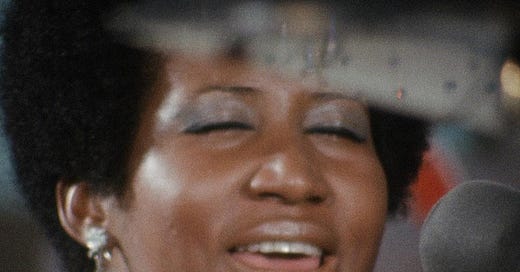




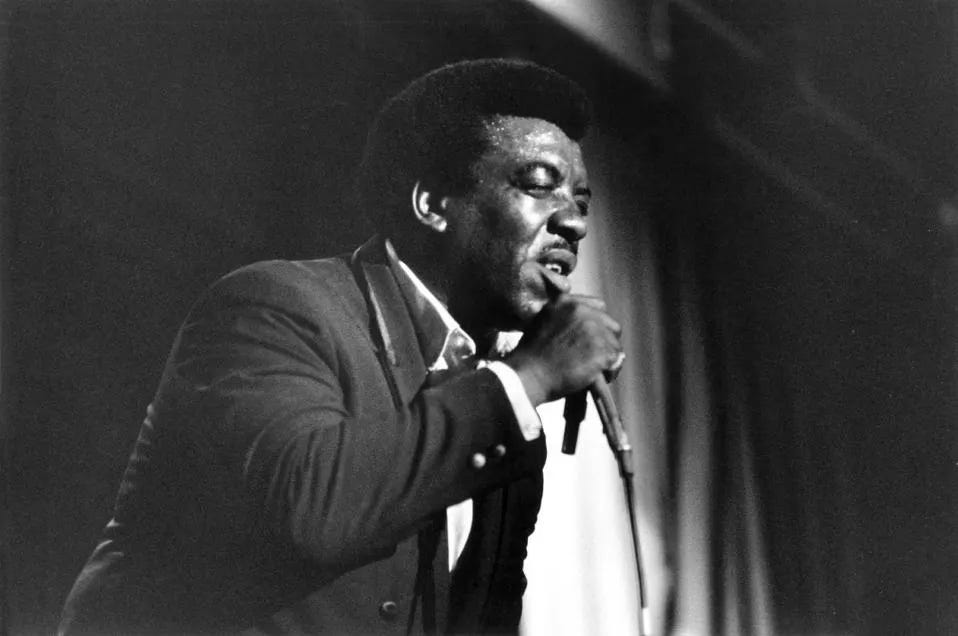
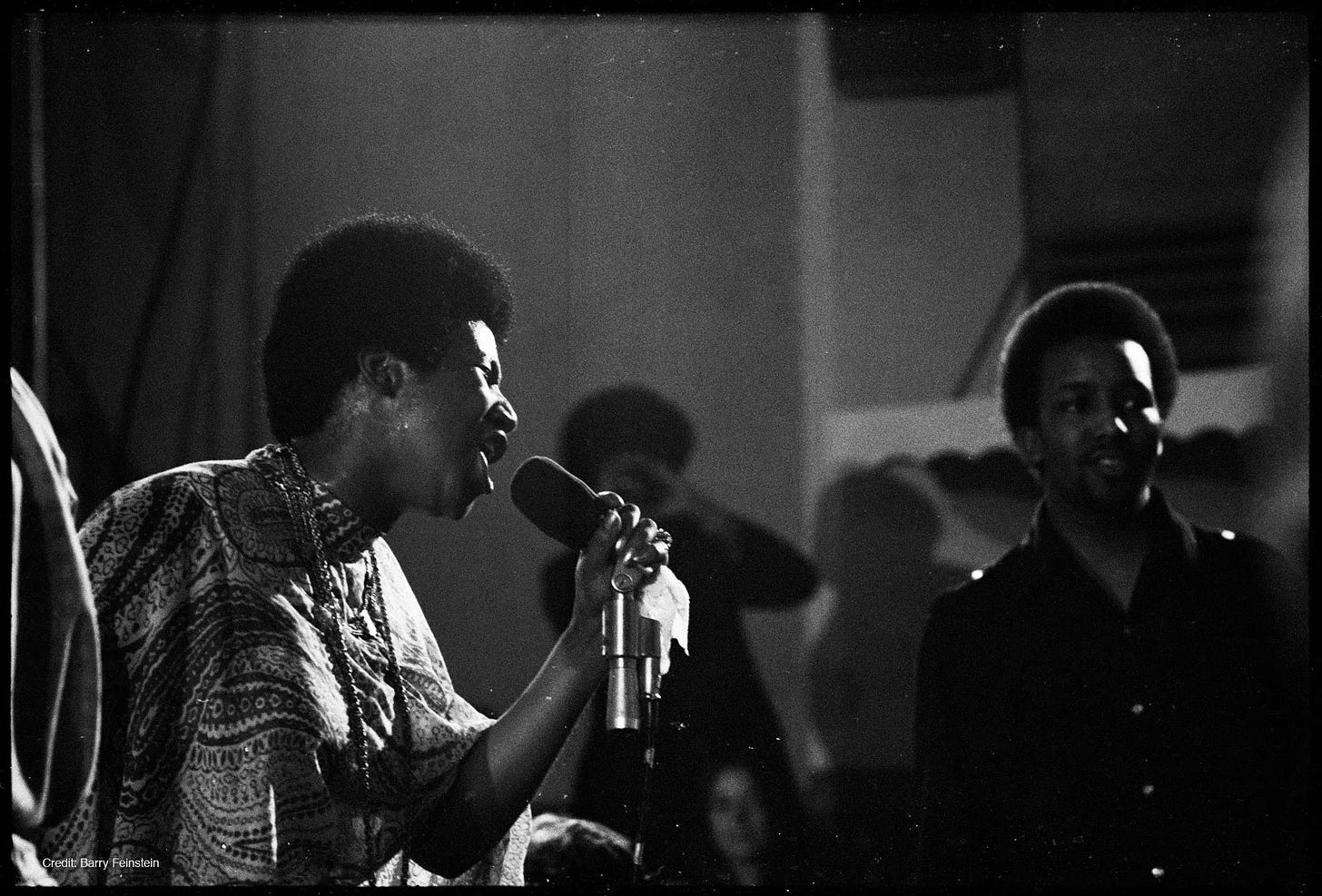
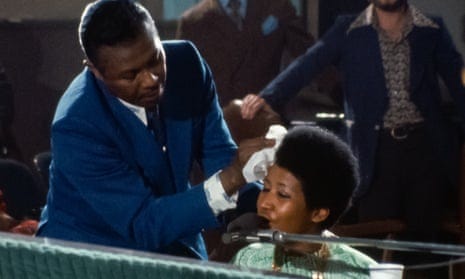
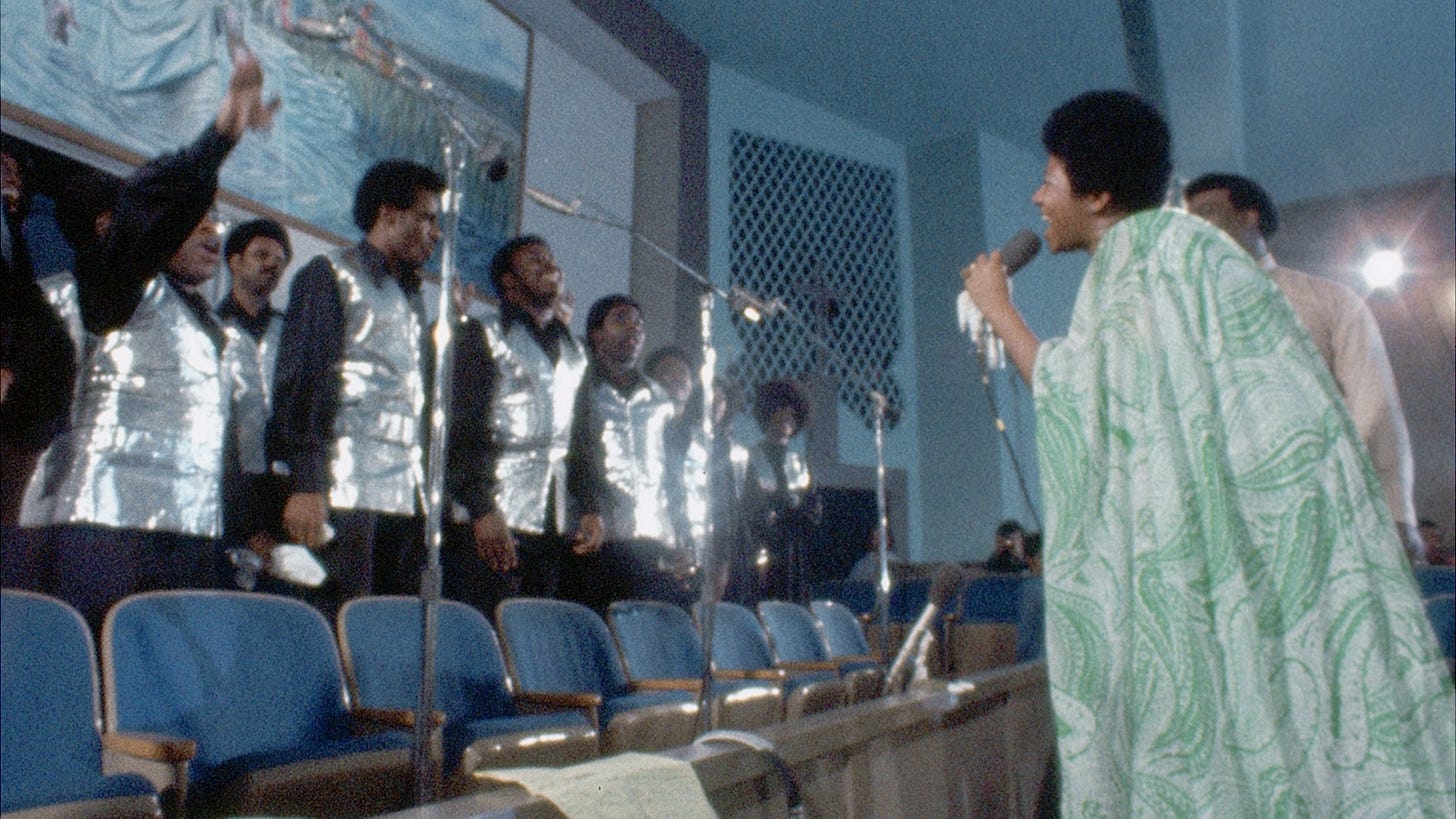
After listening to the album for years (I think it’s the best selling gospel album of all time) I felt as if I was watching a film of a book I had read many times. It was hard not to focus on the differences, the omissions and the visuals - so I had to give this a couple of attempts. This really needs to be compared with the film Respect featuring Jennifer Hudson as Arethra - for me that brought all three performances together and let me appreciate them all in different ways.